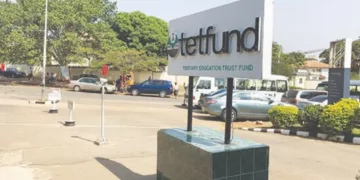Academic Staff Union of Universities (ASUU) has said no progress has been made in its negotiations with the Federal Government. All eyes are now on its National Executive Council (NEC) meeting, where the union will decide its next course of action.
ASUU President, Prof. Chris Piwuna, confirmed in an interview with LEADERSHIP yesterday that despite expectations from students, parents, and lecturers, the Federal Government has failed to make any concrete move to resolve the long-standing issues. “As it stands, there is no update. Nothing has changed,” he said.
Also reacting, Abuja zonal coordinator of ASUU, Professor Al-Amin Abdullahi, stressed that the union is systematic in its dealings with the government but warned that members are running out of patience.
“The Union is procedural and systematic in its approach to these issues with the FG. The NEC of ASUU is yet to convene after the nationwide protests cum rallies of the previous week.
“I can assure you that the NEC will meet and direct the next level of action. As is probable, our members are fed up with the passivity of President Bola Ahmed Tinubu’s administration with respect to our demands, the topmost of which is the implementation of Alh Yayale Ahmed’s document submitted in February of this year.
“As a result, our members’ eyes are on strike, the only language the FG understands,” he added.
The crisis, which has dragged on for over a decade, revolves around the unimplemented 2009 ASUU-FG Agreement covering university funding, improved welfare for lecturers, payment of earned academic allowances, and revitalisation of public institutions.
A persistent sticking point is the government’s insistence on paying salaries through the Integrated Personnel and Payroll Information System (IPPIS), which ASUU rejects. The union continues to push for its own homegrown platform, the University Transparency and Accountability Solution (UTAS), which it argues better suits universities’ peculiarities.
The last major strike in 2022 lasted eight months, grounding academic activities nationwide and leaving millions of students stranded. It was suspended only after a court order and renewed government promises that had yet to materialise.
Although the Tinubu administration has pledged to resolve the 16-year stalemate sustainably and constitutionally, union leaders insist that no tangible steps have been taken.





